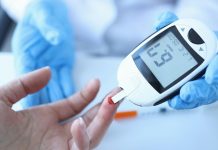
Alcohol consumption and its effects on health can be a confusing topic, especially for individuals managing chronic conditions like type 2 diabetes.
Understanding how alcohol interacts with diabetes is crucial for those affected, as it can influence blood sugar levels and the effectiveness of diabetes medications.
Type 2 diabetes involves a problem with insulin resistance or deficiency, leading to high blood sugar levels. Managing these levels is a daily task, influenced by diet, activity, medications, and potentially, alcohol consumption.
Alcohol’s impact on diabetes is complex and depends largely on the amount consumed and the overall management of the condition.
How Alcohol Affects Blood Sugar
Alcohol can both increase and decrease blood sugar levels, depending on several factors, including how much you drink and if you are eating at the same time. Initially, moderate alcohol consumption can lead to an increase in blood sugar.
Alcohol is rich in sugars and calories, which can cause blood sugar levels to rise. However, excessive alcohol consumption, especially on an empty stomach, can block the liver from releasing stored glucose into the bloodstream, potentially causing hypoglycemia (low blood sugar levels).
Hypoglycemia can be dangerous, particularly for people taking insulin or insulin-stimulating medications. Normally, the liver helps to regulate blood sugar levels by releasing stored glucose in response to insulin.
Alcohol can impair this vital function because the liver prioritizes breaking down alcohol over other metabolic processes. This effect can last for several hours after drinking, increasing the risk of low blood sugar overnight.
Research Evidence
Studies on alcohol and type 2 diabetes provide mixed results, reflecting the complexity of how alcohol affects the body.
Some research suggests that moderate alcohol consumption may have protective benefits, such as reduced risk of heart disease and minor improvements in insulin sensitivity.
For instance, a review published in “Diabetes Care” found that moderate alcohol consumption (defined as one drink per day for women and up to two drinks per day for men) might lower the risk of type 2 diabetes compared to non-drinkers.
However, these potential benefits come with cautions. The American Diabetes Association advises people with diabetes to only consume alcohol with food to help mitigate the risk of hypoglycemia and to monitor blood sugar levels closely.
Guidelines for Safe Alcohol Consumption with Diabetes
For individuals with type 2 diabetes who choose to drink, following these guidelines can help manage the risks:
Check Blood Sugar Levels: Before drinking, ensure your blood sugar levels are well controlled, and check your levels before going to bed to prevent overnight lows.
Limit Quantity: Stick to the recommendation of one drink per day for women and two for men. One drink is typically considered to be a small glass of wine (5 ounces), a single beer (12 ounces), or 1.5 ounces of distilled spirits.
Eat a Meal: Consuming alcohol with food can help slow the absorption of alcohol and reduce the risk of hypoglycemia.
Avoid Sugary Mixed Drinks: Cocktails mixed with soda, juice, or cream can raise blood sugar levels; opt for simpler mixers like water or club soda.
In conclusion, while moderate alcohol consumption might offer some benefits to individuals with type 2 diabetes, it requires careful management and personal responsibility.
The key is understanding your own body’s response to alcohol and maintaining consistent communication with healthcare providers to ensure that your diabetes management plan is safe and effective.
If you care about diabetes, please read studies that pomace olive oil could help lower blood cholesterol, and honey could help control blood sugar.
For more information about diabetes, please see recent studies about Vitamin D that may reduce dangerous complications in diabetes and results showing plant-based protein foods may help reverse type 2 diabetes.
Copyright © 2024 Knowridge Science Report. All rights reserved.



